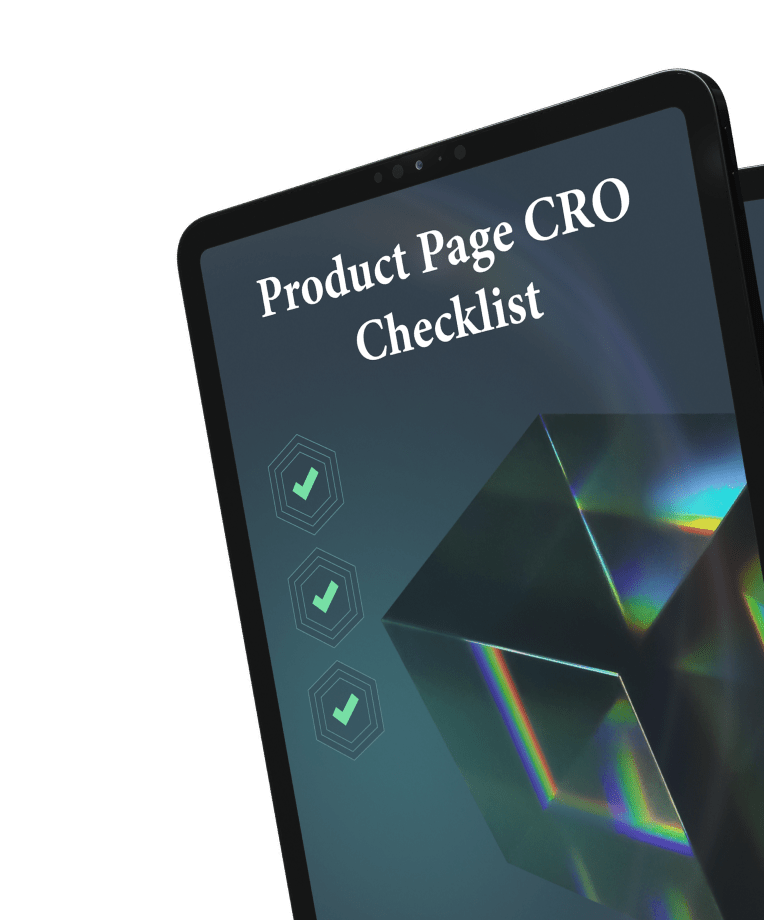Establishing a strong online presence has become crucial for business growth, and B2B sellers can no longer afford to overlook it. Transitioning to a B2B eCommerce platform offers benefits such as automation, personalized experiences, and cost efficiency.
In 2023, B2B online sales in the US are expected to reach $1.8 trillion. B2B sellers need to adapt to the rising demand from wholesalers, large retailers, and resellers who are seeking the convenience of digital transactions.
In this article, we explore the reasons why shifting to B2B commerce platforms is essential, highlight some of the popular platforms available today, and provide guidance on selecting the most suitable platform for your specific business needs.
Let’s start.
Top reasons to shift to B2B eCommerce platforms
In today’s rapidly evolving business landscape, where digital transformation is paramount, shifting to B2B eCommerce platforms has become a strategic imperative for businesses seeking to thrive in the online marketplace. Here are key reasons why businesses should embrace B2B eCommerce platforms for their sales operations:
- Enhanced convenience
B2B eCommerce platforms offer the convenience of conducting business transactions online, allowing buyers and sellers to connect and engage at any time, from anywhere.
- Increased market reach
B2B eCommerce platforms provide access to a wider audience of potential buyers, including wholesalers, retailers, and resellers, both domestically and globally.
- Improved customer experience
B2B eCommerce platforms focus on providing a personalized and streamlined experience for buyers, enhancing the shopping journey and leading to higher customer satisfaction and loyalty.
- Cost efficiency
B2B eCommerce platforms automate various aspects of the sales cycle, reducing operational costs associated with manual processes, paperwork, and order errors.
- Data-driven insights
B2B eCommerce platforms capture valuable data throughout the customer journey, enabling businesses to make informed decisions and optimize sales strategies.
- Integration capabilities
B2B eCommerce platforms seamlessly integrate with existing systems, streamlining operations and ensuring data consistency.
- Competitive advantage
Embracing B2B eCommerce platforms provides a competitive edge by offering a convenient and efficient online buying experience.
- Scalability and flexibility
B2B eCommerce platforms can accommodate business growth and changing needs, adapting to evolving market trends and customer expectations.
- Real-time updates
B2B eCommerce platforms enable real-time inventory visibility, pricing updates, and order tracking, ensuring accurate and up-to-date information for buyers.
- Streamlined supplier management
B2B eCommerce platforms facilitate easier communication and collaboration with suppliers, streamlining the procurement process.
By leveraging the power of B2B eCommerce platforms, businesses can harness the advantages of digital technology and position themselves for success in the online marketplace.
Magento
Development Get an online store that sells. Woo customers with a seamless UX that guides them from the first point of contact to the checkout page.

Best B2B eCommerce platforms
We’ve reviewed the most popular B2B eCommerce platforms available on the market to share with you so you can make an informed decision.
#1 Adobe Commerce
Adobe Commerce, powered by Magento, combines strong performance and robust security features to cater to large-scale B2B businesses. It allows for the creation of seamless omnichannel experiences that cater to both B2C and B2B customers on a single platform.
By utilizing Adobe Commerce, you gain access to advanced automation tools that enable customer segmentation and personalization. The platform offers a user-friendly interface and drag-and-drop functionality, facilitating the creation of visually appealing content and streamlined shopping experiences for your B2B customers. Furthermore, native integrations with Adobe Products such as Experience Manager, Target, Creative Cloud, Analytics, and others empower you to effectively manage and scale your B2B business.
For small businesses with limited budgets, Magento Open Source provides a free and open-source alternative. You can leverage additional Magento extensions and functionalities to enhance your B2B site. When you’re ready to expand, seamlessly transition to Adobe Commerce to take advantage of its advanced features, which offer endless possibilities for growing your business.
#2 Salesforce B2B Commerce
Salesforce B2B Commerce is a powerful platform designed specifically for businesses operating in the B2B sector. It offers a comprehensive suite of tools and features to create seamless digital commerce experiences for B2B customers. With Salesforce B2B Commerce, businesses can build and customize online storefronts, manage product catalogs, and streamline the entire order management process. The platform enables personalized buying experiences through customer-specific pricing, tailored promotions, and advanced product recommendations.
Additionally, Salesforce B2B Commerce integrates seamlessly with other Salesforce solutions, such as CRM and Service Cloud, allowing businesses to have a unified view of their customers and provide exceptional customer service. With its robust capabilities and integration options, Salesforce B2B Commerce empowers businesses to drive growth, enhance customer satisfaction, and stay ahead in the competitive B2B market.
#3 OroCommerce
With OroCommerce’s integrated B2B eCommerce and CRM platform, you can accelerate your digital transformation. With its ready-made components and flexible features, you can effortlessly create a sleek and contemporary B2B selling environment. The user-friendly interface enables you to design and launch your B2B site with reduced development expenses.
OroCommerce provides a range of tools for digitizing product catalogs, precise customer segmentation, adaptable payment options, and efficient order tracking. Its reporting capabilities and performance dashboards leverage data analytics, empowering you to make informed business decisions. The platform seamlessly integrates with your existing business systems, allowing you to efficiently manage your B2B operations in one centralized location.
OroCommerce also supports multiple sales channels, including self-service portals, sales representative interfaces, and marketplaces, enabling businesses to engage with customers across various touchpoints.

#4 Shopify
Shopify offers a versatile platform that caters to both online retail stores looking to incorporate wholesale options and businesses seeking a dedicated B2B site. The B2B features on Shopify enhance the existing eCommerce functionalities and provide essential tools for B2B sellers to effectively operate their online businesses.
These tools include advanced customization options for themes, customer-specific pricing, flexible payment terms, customer authentication, and variable discounts. Additionally, Shopify grants access to Shopify Functions, Shopify APIs, and other native integrations, expanding the capabilities of your B2B operations.
To streamline processes, B2B on Shopify facilitates seamless integration with major enterprise resource planning (ERP) providers like Acumatica, Brightpearl, and NetSuite. It also supports integration with customer relationship management (CRM) systems and over a thousand business apps. This simplifies the integration of existing business tools, allowing for smooth business management.
As Shopify is already renowned for its reliable and secure platform, leveraging it for your B2B operations adds credibility to your brand. This is especially crucial when establishing and building your brand’s reputation in the market.
#5 SuiteCommerce
SuiteCommerce is a robust B2B eCommerce platform that offers comprehensive features and capabilities for successful B2B online stores. It provides a unified commerce experience across web, mobile, and in-store channels, allowing businesses to personalize the shopping experience.
With powerful tools for customer segmentation and order management, businesses can streamline processes and enhance customer satisfaction. SuiteCommerce seamlessly integrates with ERP, CRM, and inventory management systems, ensuring smooth data flow. It also prioritizes security and compliance, protecting customer data and meeting industry standards.
#6 WooCommerce
WooCommerce allows you to transform your WordPress website into a fully optimized eCommerce store that caters to both B2C and B2B customers. You can get the WooCommerce B2B extension offering advanced features and increased flexibility to enhance your wholesale operations.
By integrating five of WooCommerce’s top standalone extensions, this plugin equips users with robust B2B capabilities, allowing them to effectively manage both B2C and B2B activities on a single site. The registration process includes dropdown options for both B2C and B2B customers, with manual review and approval required for B2B account registrations. Once granted the appropriate user role, B2B customers gain access to personalized features such as dynamic pricing, extensive quote submission fields, quote-to-order conversion, CSV price import, and tax exemption options.
In addition to its native extensions, WooCommerce B2B benefits from the vast plugin ecosystem offered by WordPress. This makes it a reliable and adaptable platform for expanding both B2C and B2B operations, ensuring continuous growth and success.
#7 OpenCart
OpenCart is a freely available open-source software, making it an attractive choice for B2B sellers starting with limited financial resources. While it does require some level of developer knowledge for usage and maintenance, there is a supportive community of users available to assist when needed. Additionally, there is a dedicated support team available for commercial accounts.
To begin using OpenCart, simply download and install the software to gain access to the platform. Create an account, assign team access, and set specific privileges based on their roles. Upload product information, manage customer orders, create coupon codes, and establish tax exemption rules for B2B customers. Utilize the built-in affiliate system to manage affiliate and influencer marketing. Gain a comprehensive overview of essential data through the administrator dashboard, allowing you to efficiently manage your entire B2B operation within a single interface.
The free version of OpenCart offers all the necessary core eCommerce solutions for small businesses, with no monthly subscription fees. As your business grows, you have the option to invest a few hundred dollars to access the multi-vendor marketplace and a customized B2B-specific interface, providing additional scalability and tailored functionality.

How to choose a B2B eCommerce platform? Key features
Here are some essential features that your B2B eCommerce platform should offer:
- User-friendly interface
B2B eCommerce platforms should provide advanced features while maintaining an intuitive and easy-to-use interface. Customers should find it effortless to navigate the platform, ensuring a seamless ordering experience.
- Access restrictions
A B2B eCommerce platform should allow customization of user experiences by offering options to restrict certain website pages or hide specific pricing information, catering to different user roles or customer segments.
- Integration capability
To ensure a unified system for customization and order management, B2B eCommerce platforms should seamlessly integrate with various systems, minimizing confusion and potential issues with order fulfillment and inventory management.
- Personalization options
In line with evolving trends, B2B eCommerce platforms should support personalization features. Customizability should extend to customer-specific pricing, personalized catalogs, and tailored online experiences to meet unique customer requirements.
- Responsive design & mobile accessibility
B2B buyers, like other consumers, utilize different devices for shopping, so the chosen eCommerce platform should be responsive and provide a mobile-friendly experience for customers to browse, research, and place orders conveniently.
- Flexible payment options
B2B buyers often make recurring, larger orders, necessitating flexible payment options such as partial payments. The eCommerce platform should support these payment preferences to accommodate the unique payment needs of B2B transactions.
- Order notes & communication
The platform should allow customers to add notes about items or orders, enabling effective communication with sales representatives. It should also facilitate order-specific instructions, product inquiries, and upselling opportunities, enhancing the overall customer experience.
- Product catalog management & inventory availability
B2B businesses face challenges in organizing product information received from suppliers in various formats. An ideal eCommerce platform should offer robust catalog management capabilities and provide real-time inventory data to prevent backorders and ensure efficient inventory management.
- Self-service functionality
B2B buyers prefer self-service options, such as accessing shipping details, quote approvals, and order tracking independently. The eCommerce platform should empower customers to resolve issues and access relevant information without relying heavily on customer support.
- Order replication
Since B2B customers frequently reorder the same items, the platform should allow easy duplication of previous orders. Enabling customers to view and duplicate their past orders simplifies the reordering process and improves overall efficiency.
What else to consider when choosing a B2B eCommerce platform
Ultimately, it’s crucial to consider not only the needs of your customers but also the impact of the chosen B2B eCommerce platform on your own business. The reasons for seeking an eCommerce platform can vary, such as acquiring new customers or strengthening relationships with existing ones. While revenue growth is important, it shouldn’t be the sole focus. The right platform should also enhance operational efficiency by automating manual processes and reducing the cost of sales.
The key is to identify a platform that aligns with both your immediate and long-term goals. It should provide the necessary tools to support your business as it expands and evolves over time.
Additionally, the usability of the platform by your team is essential to consider. While user experience matters, if your team requires extensive training and expertise to utilize the platform effectively, it can become less cost-effective. Managing a fully functional eCommerce site, especially one requiring custom development, can consume significant manpower and resources.
Also, if your business engages in a large number of B2B sales, it is likely that you will require a comprehensive and potentially more costly software solution compared to smaller businesses. It is advisable to obtain multiple price quotes from different providers as you evaluate and compare your options.
And the last point, consider whether the chosen platform integrates with your existing software.
Evaluate your current software programs to identify any that you can stop using since your B2B eCommerce platform might offer similar features. For essential programs like accounting software, ensure that data synchronization is possible between the platforms, allowing seamless integration and data transfer.
Final thoughts
The platforms mentioned in this article offer a range of features and functionalities tailored to meet the diverse needs of B2B enterprises. From robust order management systems to seamless integration capabilities, each platform brings unique advantages. Remember to assess your business requirements, scalability, and budgetary considerations before making a decision. By leveraging the power of an efficient B2B eCommerce platform, you can streamline operations, enhance customer experiences, and drive sustainable growth in today’s competitive landscape.







